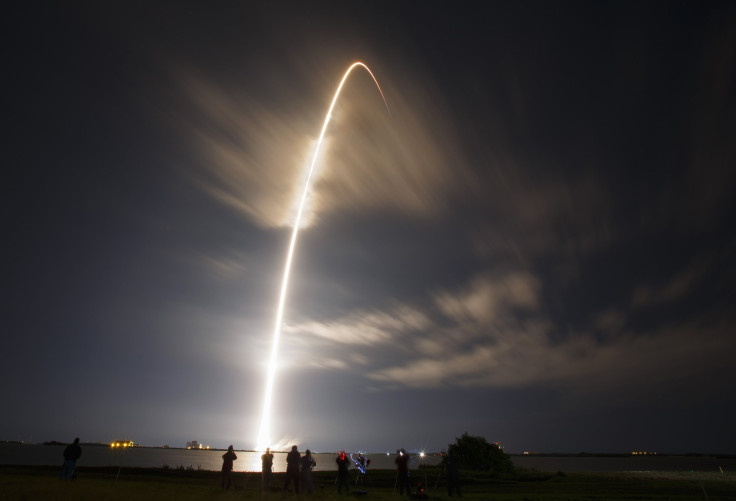Russian’s Space Capsule Carrying Goods For Astronauts Falls Through Atmosphere, Will Re-Enter Atmosphere & Burn Up

Russian’s unmanned supply capsule Progress M-27M fell through the atmosphere after a botched attempt to launch the spacecraft from Kazakhstan on Wednesday. It is expected to re-enter the atmosphere and starts burning.
NASA’s Mission Control said the flight controllers failed to collect data from Progress M-27M, which barged through a wrong orbit. The capsule then appeared to be spiralling at a powerful rate and was declared a total loss. Just like all Progressive space crafts, the M-27M is expected to burn up in the atmosphere.
“It has started descending. It has nowhere else to go. It is clear that absolutely uncontrollable reactions have begun,” said an official speaking on anonymity, adding that the spacecraft is apparently out of control as it plunges back to Earth.
Progress M-27M was loaded with almost three tonnes of provisions, including clothes, fuel and food. It tumbled shortly following its launch and began spinning uncontrollably.
The spacecraft was supposed to dock at the international Space Station six hours after it took off on Tuesday and deliver the goods to astronauts for the latter’s six months of provisions.
In an interview, Russian Mikhail Kornienko and American Scott Kelly, one-year crew members of the space station, told the Associated Press the flight controllers gave up in commanding the cargo space craft. Kelly assured they can go by without the goods from Progress M-27M and explained incidences such as this are common.
Although it was unfortunate for the capsule supply to never reach its destination, Kelly said the space station has program plans for occurrences like this. What is important, according to the American astronaut, is the hardware which can be replaced.
The United States and Russia are responsible for supplying astronauts in the space station. NASA engaged the services of SpaceX and Orbital Sciences Corporation to replenish the space station with regular shipments after the shuttle program expired in 2011.
Reports say NASA officials wanted to send a six-month supply of food to the space station, but due to accidents in Orbital Sciences, the reserves are down a month or so. Also periodically providing cargo is the Japanese Space Agency, which aims for a summer shipment.
The space station is currently operated by six persons, including two Americans. Progress M27-M’s failure is the second in six months.
For comments or feedback on the article, contact the writer at kizmet@ymail.com





















